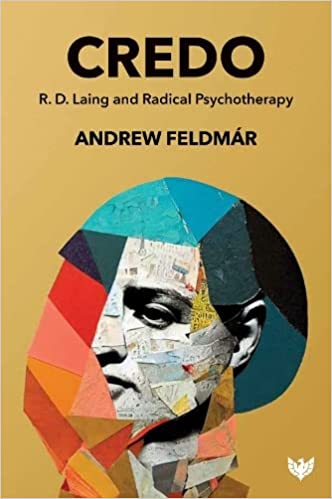Credo: R. D. Laing and Radical Psychotherapy

Book Details
- Publisher : Karnac Books
- Published : 2023
- Cover : Paperback
- Pages : 360
- Category :
Existential therapy - Catalogue No : 97146
- ISBN 13 : 9781800132443
- ISBN 10 : 1800132441
Reviews and Endorsements
‘I found reading Credo inspiring, even therapeutic, and I think it could be so for many who read it with an open mind and heart. It’s written with careful, attentive observations and questioning of self and others, and with a clarity of intentions and aspirations. It has a lot of jargon-free, undogmatic, uncommon sense.’
Leon Redler, physician, psychotherapist, and researcher
’Andrew Feldmár’s Credo is an amazing memoir, filled with brave personal revelations, a record of his intellectual journeys and accomplishments, his conversations with some of the world’s leading psychologists, philosophers, psychiatrists, and healers –especially R. D. Laing but also Francis Huxley, David Bakan, and others – and his vast reading of the West’s major thinkers. Credo is a guide to Feldmár’s humility as a therapist, his eternal life as an outsider – a Jew, a Hungarian-speaking Canadian – and his ability to always start over again and to “market his pathology” as a compassionate therapist to very diverse populations. I am honored to have worked with him in Vancouver and New York — but even I did not know that Feldmár had founded a Laingian-style shelter (Soteria) for people with psychiatric diagnoses in Hungary or that friends had founded a Feldmár Institute there to popularise his theoretical and practical approaches to psychotherapy.’
Phyllis Chesler, writer, psychotherapist, and professor emerita of psychology and women’s studies, College of Staten Island
‘With an unerring sense of direction, Andrew Feldmár, born into a desperate situation in Hungary, found his way from Canada to R. D. Laing and the milieu around him in London in 1974 (I was there too). His one year of intensive involvement became foundational both for his life and for his career as a psychotherapist, founded in the ethics of ancient wisdom and existential courage. Through many what he calls “magnified moments”, he tells and shows how to fully inhabit one’s own life despite trauma and struggles, as a simultaneous sine qua non for being in communion with anyone else and with all that is. I remember and think of Andrew with respect and personal warmth; his Credo is well worth reading.’
Paul Zeal, MA, writer and psychotherapist
'I found this an intriguing book to read. One can learn much about the formulation of a radical psychotherapeutic method here. [...] we can refer to Credo as a valuable contribution to the world of Humanistic Psychology, amongst other things.'
Murray Gordon, MAHP, Living Psychology
'I found reading Credo inspiring, even therapeutic, and I think it could be so for many who read it with an open mind and heart. I think that may be so for the psychotherapists, trainee therapists and people considering psychotherapy, who may be among its main initial readers. [...] It’s written with careful, attentive observations and questioning of self and others, and with a clarity of intentions and aspirations. It has a lot of jargon-free, undogmatic, uncommon sense.'
Leon Redler, 'Mad in the UK', June 2024
‘The book is such a clarion call to individual freedom, to therapy as “a process by which patients find their own path”, (286 p.) that this feels in keeping with its spirit. […] Feldmár’s role is to provide a place for the patient to be without anyone pressurising them, to encourage them to be themselves by taking them seriously and to demystify their narrative by encouraging scepticism about the stories they tell themselves. It is not to give them certainty, but to help them find something which frees them to be themselves.’
Rose Baring, British Journal of Psychotherapy 00, 0 (2024) 1–3

